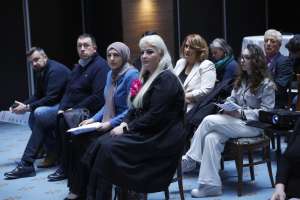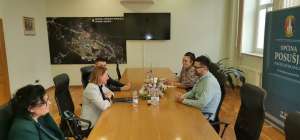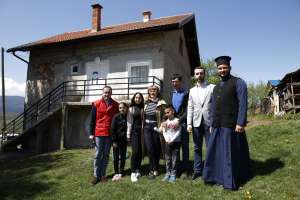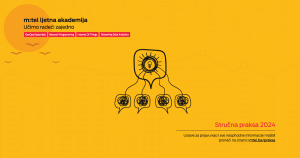SARAJEVO, April 24 (FENA) - More than 400,000 preschool, primary and secondary school-aged children in Bosnia and Herzegovina are not going to kindergartens and schools for more than a month. For the first time, children, teachers and parents are experiencing online learning, which brings many challenges but also offers many opportunities.
UNICEF Representative in Bosnia and Herzegovina, Dr. Rownak Khan said that close to 1.4 billion children are now affected by the school closure in more than 150 countries: “This is the first time the world is faced with such a huge impact of the pandemic on education. Although the schools are closed, the learning must continue ” says Dr. Khan.
UNICEF worldwide supports governments in planning education activities to address the needs of children in this critical period, including children in Bosnia and Herzegovina.
"As we have learned from other health crises such as Ebola when children and young people from vulnerable groups are absent from school for a longer time, they may never come back. We must do everything we can to provide them with ways to continue their learning and limit the impact of this crisis on generations of children and young people.
Bosnia and Herzegovina education authorities must provide access to education for all children. UNICEF estimates that around 10,000 children in Bosnia and Herzegovina do not have adequate access to the necessary technology to be included in online learning. But with all the challenges, this is also an exceptional opportunity to improve the quality of education in Bosnia and Herzegovina, to introduce new technologies, including assistive technology for children with disability and more modern approaches to education", said Dr. Khan.
UNICEF's education rapid needs assessment has shown that Bosnia and Herzegovina education authorities have different teaching practices during the COVID-19 pandemic, as well as different monitoring and quality assurance mechanisms. Many innovative practices have been reported which can be used to improve the quality of education both during and after the pandemic.
UNICEF has supported education authorities in Bosnia and Herzegovina in responding to the COVID-19 pandemic by providing over 120,000 BAM for emergency assistance. In partnership with UNICEF, educational authorities have started implementing projects tailored to their local needs.
Educational authorities have identified various priorities, such as the acquisition of tablets and Internet packages for children without access to ICT, the development of software solutions for online education, and professional development for teachers to improve online teaching, stated UNICEF BiH.
(FENA) S. R.











